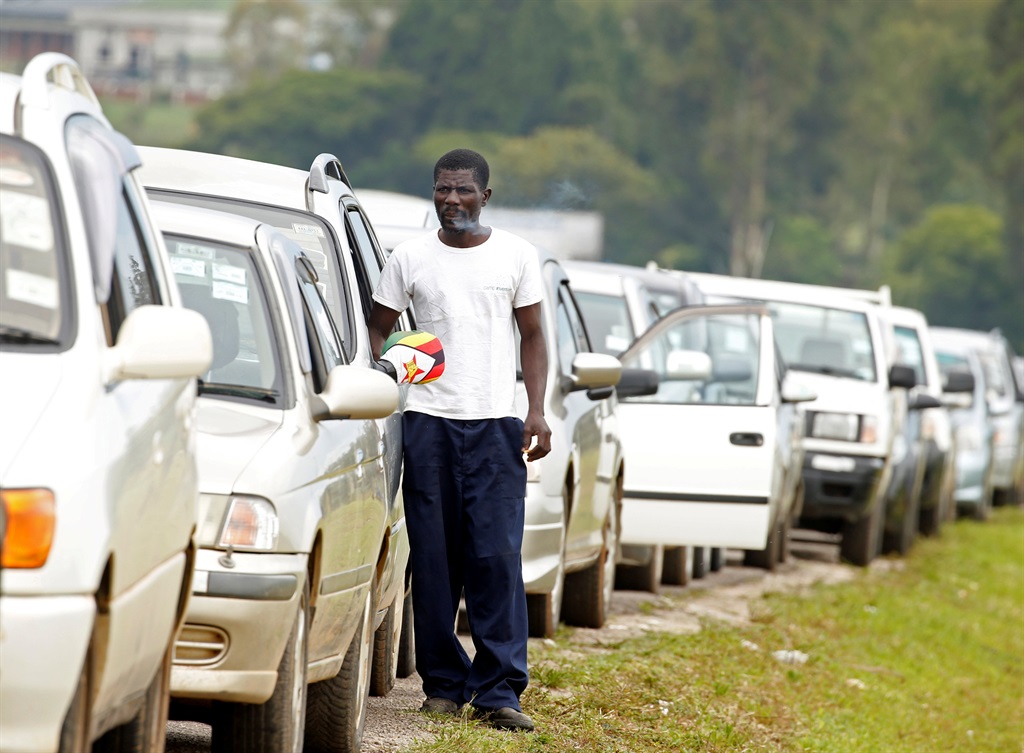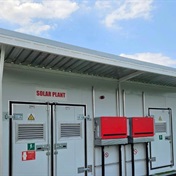
A national strike has gripped the streets of Harare and Bulawayo in Zimbabwe following the announcement by President Emmerson Mnangagwa over the weekend that fuel prices would more than double.
Mnangagwa said that petrol prices would rise from $1.24 (about R17) a litre to a whopping $3.31 (about R46) and diesel from $1.36 (about R18.94) a litre to $3.11 (about R43).
The increase led to a clash between protesters and police on Monday, after protesters barricaded roads with stones and tyres were burnt in protest of the fuel increases. Police fired teargas into crowds in a bid to disperse the angry crowds.
Bulawayo protesters marching turning away cars. #shutdownZimbabwe#ZimShutDown pic.twitter.com/vRnSZOcNbp
— Open Parly ZW (@OpenParlyZw) January 14, 2019
During a televised address on Saturday, Mnangagwa said that the hefty increases were made in a move to improve supplies and tackle the “rampant” illegal trading.
The national stayaway is set to continue until January 16, with the Zimbabwe Congress of Trade Unions (ZCTU) leading the nationwide strike action.
Speaking to activist and leader of the #ThisFlag movement Pastor Evan Mawarire on Sunday, president of the ZCTU Peter Mutasa warned that the hefty fuel increases would have a direct impact on the functioning of the country, including its learners who would not be able to afford the transportation to and from school.
“Everyone is suffering, look at our schools, those in boarding schools, they are starving. Those at tertiary schools, they are going to be dropouts. Their parents are failing to make ends meet. We are earning low salaries, an average of $300 (about R4177), and now with the price increases of fuel and basic commodities, we are working just for transport,” Mutasa said.
The union has three key demands from the government which include:
1) The government must address the key economic challenges that the country faces;
2) That workers must be paid in dollars; and
3) That the bond note system should be removed
Mawarire called on his social media followers to unite in the shutdown.
“People are struggling in life and we can’t just sit and watch this. So we are calling for a stayaway, a shutdown of the nation. This is not just for one person, it is for everyone,” he said.
Street protests in Bulawayo. #shutdownZimbabwe#ZimShutDown pic.twitter.com/jDy6pDUXd1
— Open Parly ZW (@OpenParlyZw) January 14, 2019
The fuel shortages which hit the nation in October last year have left thousands of commuters stranded. ZimCitizen News reported last week that taxi operators were forced to increase their prices after paying $5 (almost R70) a litre from the black market. As a result of the increased fares, many were left to walk long distances as they had been unable to afford the increased taxi prices.
Reuters reported on Monday that the drastic 150% overnight rise in Zimbabwe’s fuel prices failed on Sunday to ease a nationwide petrol and diesel shortage caused by a lack of hard currency.
Most service stations still had no fuel to sell to motorists who have been sleeping in their vehicles to queue. Some said they were awaiting an official notice from the regulatory authority.
Deputy Information Minister Energy Mutodi tweeted that commodity price volatility “will be temporary before goods prices normalise”.
The acute shortage of US dollars has made it hard for Mnangagwa’s government to import not only fuel but also medicine and other goods.
Mnangagwa himself was on Sunday setting off on a five-nation tour that starts in Russia and ends at the World Economic Forum in Davos, Switzerland.
Zimbabwe abandoned its own currency in 2009 after it was wrecked by hyperinflation, and adopted the greenback and other hard currencies such as sterling and the South African rand.
But now there is not enough hard currency to back up more than $10 billion in electronic funds trapped in local bank accounts, prompting demands from businesses and civil servants for cash that can be deposited and used to make payments.
Mnangagwa has said his government would not let businesses raise prices but they have been doing so anyway, arguing that they have no choice but to buy dollars at a premium on the black market.
Inflation is already at a 10-year high of 31% and, in the past two weeks, public transport firms have tripled fares citing a shortage of fuel, which some have been buying on the black market.
An assistant at a service station owned by Zuva Petroleum said: “We have not received any supplies since Thursday evening but we are hoping we will get a delivery before end of the day.”
A Zera spokesperson said all fuel companies had been notified of the new prices.
The ZCTU said it planned the national strike from Monday in protest at the “insensitive and provocative” fuel price increase, although such calls have in the past not been widely followed.
Teachers, who are not represented by ZCTU, are planning a nationwide strike from January 22, and civil servants have threatened to join them.
– Additional reporting by MacDonald Dzirutwe, Reuters




 Publications
Publications
 Partners
Partners








